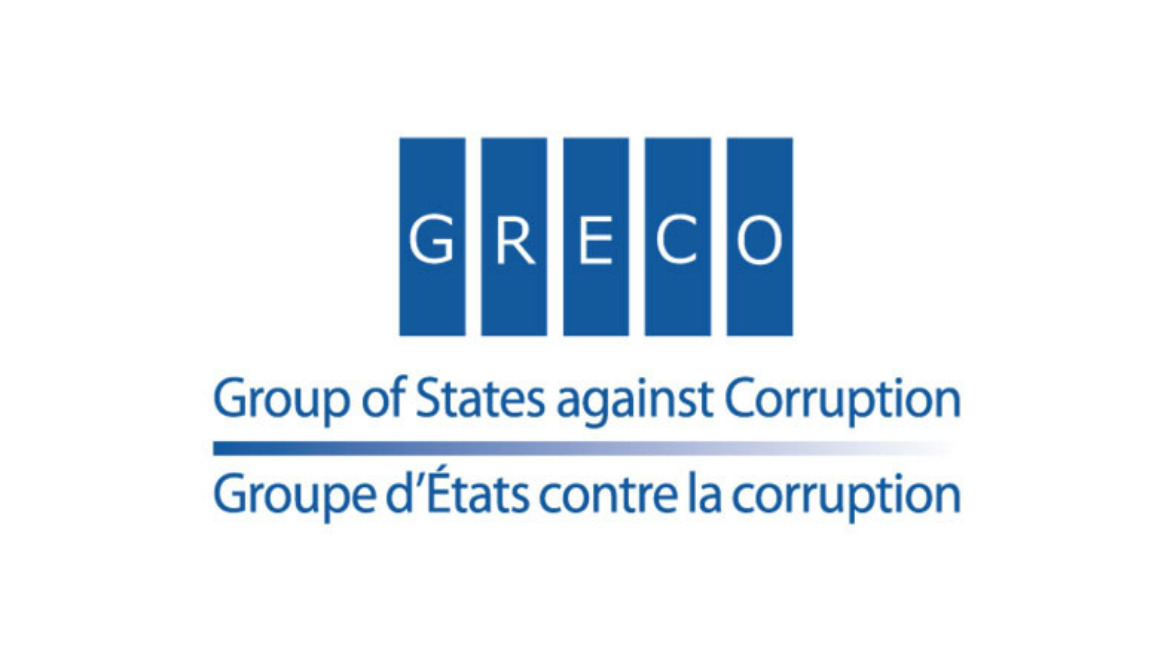Strasbourg, 30.05.2024 – The Council of Europe’s Group of States against Corruption (GRECO) has called on governments to adopt stricter regulations to prevent corruption and promote integrity in the top executive functions of central governments, particularly as concerns lobbying and contacts with third parties, and to step up their efforts to implement all GRECO recommendations fully and without delay.
In its annual report for 2023, GRECO expresses concern about the slow implementation of its recommendations on preventing corruption among parliamentarians, compared to other professional groups. It also underlines that several judicial systems must be further reformed to guarantee the independence of judges and prosecutors, and to strengthen the integrity rules that are applied to them.
Regarding its 5th evaluation round, which focuses on preventing corruption and promoting integrity among top executive functions of central government and law enforcement agencies, GRECO´s findings show that transparency, oversight and accountability remain at stake.
GRECO’s president, Marin Mrčela, said: “There is no transparency without accountability, as impunity only aggravates the risk of corruption and undermines public trust. More regulation and rigour are needed to tackle corruption risks related to the highest executive functions, in particular regarding contact with third parties and lobbyists, and to ensure the effectiveness of integrity policies. Individuals with top executive functions should lead by example.”
Read also
GRECO considers that states should ensure that their institutional and legislative integrity frameworks apply entirely and directly not only to high-level civil servants but also to ministers, their political advisers and other politically appointed staff and certain heads of state. Significant improvements are needed in areas such as adopting and implementing codes of conduct, managing conflicts of interest and lobbying, monitoring asset declarations and ensuring their transparency, limiting immunities, access to information and “revolving doors” practices.
Regarding law enforcement agencies, GRECO underscores that states should do more to ensure that corrupt behavior and integrity failings are adequately addressed at all levels within the hierarchy and to prevent undue interference of governments in police activities. There is a need to adopt comprehensive anti-corruption and integrity policies for the police, as well as to improve the management of conflicts of interest and secondary employment, the protection of whistleblowers, and recruitment, promotion and dismissal processes.
GRECO finds good progress in several areas, such as the introduction of codes of conduct for persons with top executive functions, an increased mapping of risks faced by such persons during their mandates and clear efforts made to prevent corruption in high-risk functions within law enforcement.
By the end of 2023, GRECO had published reports on 21 states evaluating their compliance with its 5th evaluation round recommendations. GRECO had evaluated 21 states as part of its 5th evaluation round. According to GRECO´s follow-up reports published as of 31 December 2023, states had fully or partly implemented 58% of GRECO´s recommendations with respect to top executive functions of central governments (compared to 45% at the end of 2022). As regards law enforcement agencies, the proportion of fully or partly implemented recommendations grew slightly, from 63% in 2022 to 67% in 2023.
At the end of 2023, 54% of GRECO´s recommendations regarding MPs, judges and prosecutors had been fully implemented, 31% had been partly implemented and 15% remained non-implemented. The highest proportion of non-implemented recommendations concerned MPs (20%), compared to judges (13.5%) and prosecutors (10%).
GRECO is concerned that, in some countries, progress is still limited concerning the application of codes of conduct for MPs, the transparency of systems for declaring assets, and the regulation of lobbying, and insufficient progress has been made in ensuring the independence of judicial councils from the legislative and executive powers. It does note positively several areas, notably an overall improved transparency of legislative processes with meaningful public participation.
GRECO celebrates its 25th anniversary in 2024. GRECO was established on 1 May 1999 as a Council of Europe Enlarged Partial Agreement by 17 states (Belgium, Bulgaria, Cyprus, Estonia, Finland, France, Germany, Greece, Iceland, Ireland, Lithuania, Luxembourg, Romania, Slovakia, Slovenia, Spain and Sweden). Today, it has 48 members: the 46 Council of Europe member states, the USA and Kazakhstan. The EU joined in 2019 as an observer.
GRECO is currently preparing its 6th evaluation round, which will focus on preventing corruption and promoting integrity in local and regional authorities and will be launched in 2025.
* * *
The Group of States against Corruption (GRECO) is a Council of Europe body that aims to improve the capacity of its members to fight corruption by monitoring their compliance with anti-corruption standards. It helps states to identify deficiencies in national anti-corruption policies, prompting the necessary legislative, institutional and practical reforms.





















































